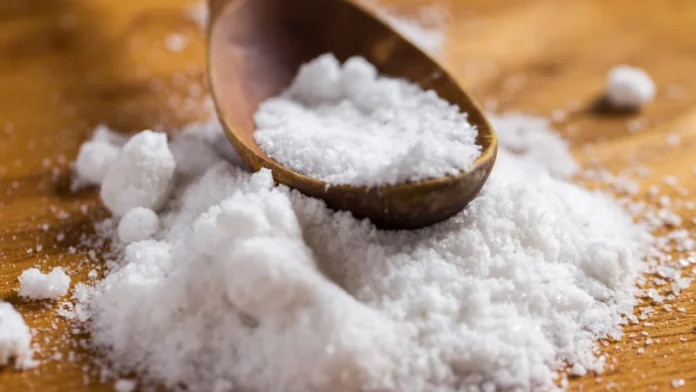Kosher salt is a big-crystal salt that’s used a lot in cooking and baking. It is a popular choice among chefs and home cooks alike because of its large grain size, which makes it easy to measure and control, and its lack of additives, which makes it a purer form of salt than table salt. Recently, there has been a growing concern about the availability of kosher salt, with many people experiencing difficulties in finding their preferred brands such as Diamond Crystal and Morton, both of which are popular choices among consumers and professional chefs.
There are a few possible reasons for the Kosher salt shortage. One possibility is that the COVID-19 pandemic has disrupted the supply chain for kosher salt, making it more difficult to get the salt from the mines to the grocery stores. Another possibility is that people are buying more kosher salt because they’re cooking at home more often during the pandemic. There are also other reasons that resulted in the Kosher salt shortage in the market, let’s learn more about it.
What Is Kosher Salt?
Kosher salt is a big-grained salt that’s great for cooking and baking.It is used to enhance flavors and has a unique texture that makes it ideal for sprinkling on top of food. Kosher salt is free from any additives, unlike table salt. It’s commonly used in the koshering process of meat, which is when the blood is removed from the meat. Diamond Crystal and Morton are two well-known brands of kosher salt.
Is There A Kosher Salt Shortage?
Yes, there’s a kosher salt shortage going on right now. It’s causing a lot of people problems, because they can’t find their favorite brand of kosher salt at the grocery store.

Why Is There A Kosher Salt Shortage?
The shortage can be attributed to several factors including:
Global Supply Chain Issues
The global salt shortage is largely due to supply chain disruptions that started during the height of the COVID-19 pandemic. Transportation and logistics services were severely delayed, and port facilities were limited due to worker shortages. This affected the smooth delivery of goods worldwide, including kosher salt. The recent pandemic lockdowns, quarantine protocols, and other travel restrictions have been a real pain in the neck.
Labor Shortages
The Kosher Salt industry is also struggling with labor shortages. These manufacturing plants and businesses need workers to keep their production going, but it’s been tough to fill open positions lately.
Increase In Demand
Kosher salt is in high demand these days, especially around the world. More people are experimenting in the kitchen, trying Jewish dishes, and discovering the many uses of kosher salt as an ingredient or household item. All this extra demand is putting a strain on the limited supply of kosher salt.
How Does Kosher Salt Shortage Affect Cooking & Baking?
The shortage of kosher salt has had a significant impact on the cooking and baking community. Chefs and home cooks have been forced to seek alternative types of salt or change their recipes due to the unavailability of kosher salt. The unique properties of kosher salt cannot be replicated by other salt alternatives.
Kosher salt is bigger than table salt, so it’s easier to hold on to and sprinkle evenly. It also has a more complex flavor than table salt, which makes it a better choice for many dishes. The shortage of kosher salt has made it difficult for chefs and home cooks to create their signature dishes. It’s also made kosher salt more expensive.
Where Can You Find Kosher Salt Amidst the Shortage?
People are turning to online platforms like Amazon or specialty stores and food service outlets to get their salt fix. But the supply is still tight, so they may have to settle for alternative salts like sea salt for now.
What Will the Future of Kosher Salt Look Like?
The future of kosher salt is uncertain amidst the shortage. Manufacturers like Morton and Diamond Crystal are striving to address the supply chain issues and redesign their packaging to deal with the escalating demand. However, it is unclear whether these efforts will be enough to meet the needs of consumers. In the meantime, some people are turning to other types of salt, such as sea salt or Himalayan salt, as a substitute for kosher salt. It is also possible that the shortage could lead to an increase in the price of kosher salt.
Why Is Kosher Salt So Popular?
Kosher salt is a coarse-grained salt that is used in cooking and baking. It is named for its use in the koshering process, which is a method of removing blood from meat. Kosher salt is popular among chefs and food enthusiasts because it has a unique texture that aids in the absorption of moisture in meats and provides enhanced flavors in recipes.
What Are The Alternatives Of Kosher Salt?
Here are some of the most common alternatives to kosher salt:
- Sea Salt: Sea salt has a similar texture and flavor to kosher salt, but it may contain trace amounts of minerals like magnesium and calcium.
- Himalayan Salt: Himalayan salt is a pretty pink salt that comes from the Himalayas. It has a slightly sweeter taste than kosher salt, and it’s often used to finish dishes.
- Fleur de Sel: Fleur de Sel is a fancy type of sea salt that’s hand-picked from the top layer of salt flats. It’s got a delicate, flaky texture and a mild, slightly sweet flavor.
- Table Salt: Table salt is a type of salt that has been refined and iodized. It is the most common type of salt in the United States, and it is often used for cooking and baking. However, table salt has a smaller grain size than kosher salt, so it may be saltier than kosher salt if used in equal amounts.
Conclusion
The kosher salt shortage has created significant challenges for the culinary community. Kosher salt is a versatile ingredient that is used in a variety of dishes, from savory to sweet. It is also used in many baking recipes. The shortage of kosher salt has forced chefs to be creative in their cooking and baking. They have had to find substitutes for kosher salt, or use less of it. This has led to some changes in the flavor of dishes. Consumers have also been affected by the shortage.
They have had to pay more for kosher salt, and it has been harder to find in stores. This has led some consumers to switch to other types of salt. Manufacturers of kosher salt are working to increase production to meet the demand. They are also working to find new sources of salt. It is hoped that the shortage will be resolved soon, but it is unclear when that will happen. In the meantime, chefs, consumers, and manufacturers are all working to adapt to the situation.
Related:
- Seagrams Ginger Ale Shortage
- Almond Milk Shortage
- Powdered Sugar Shortage
- Meow Mix Shortage
- Heavy Cream Shortage
- Hash Brown Patty Shortage
- TGEL Shortage
- Banana Shortage
- Ruby Red Squirt Soda Shortage
- Hungry Jack Potatoes Shortage
- Bang Energy Drink Shortage
- Brooks Chili Beans Shortage
- Fresca Shortage
- Green Grape Shortage
- Ricotta Cheese Shortage
- Munchee Cheese Shortage
- Starbucks Matcha Shortage
- Green Onion Shortage
- Fairlife Milk Shortage



